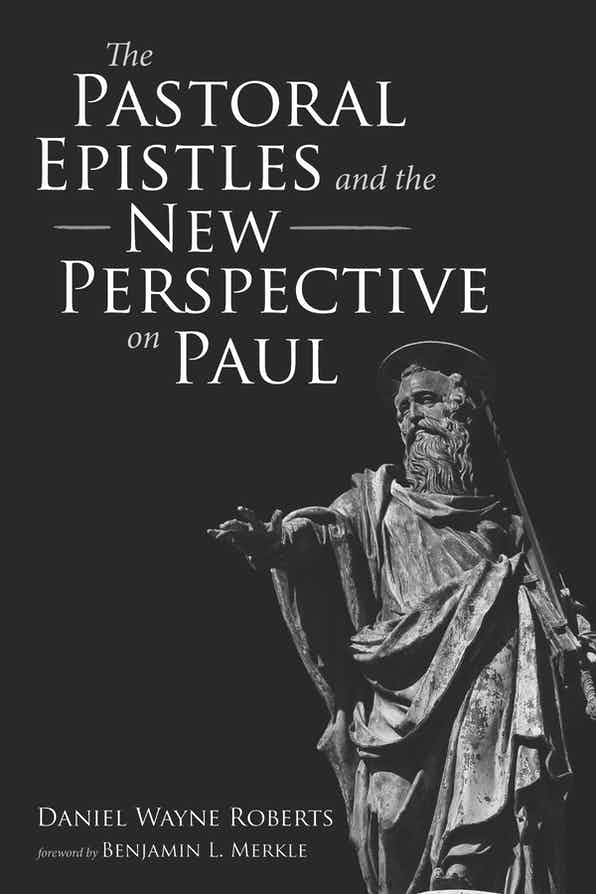I’m very pleased to note a new publication on the Pastorals:

Daniel Wayne Roberts. The Pastoral Epistles and the New Perspective on Paul. Eugene, OR: Wipf & Stock, 2021.
This is a published version of Roberts’ dissertation completed at Southeastern Baptist Theological Seminary under the direction of Benjamin L. Merkle. I provide here the publisher summary and the major headings of the work:
The so-called “New Perspective on Paul” has become a provocative way of understanding Judaism as a pattern of religion characterized by “covenantal nomism,” which stands in contrast to the traditional, Lutheran position that argues that the Judaism against which Paul responded was “legalistic.” This “new perspective” of first-century Judaism has remarkably changed the landscape of Pauline studies, but it has done so in relative isolation from the Pastoral Epistles, which are considered by most critical scholarship to be pseudonymous. Because of this lack of interaction with the Pastoral Epistles this study seeks to test the hermeneutic of the New Perspective on Paul from a canonical perspective. This study is not a polemic against the New Perspective on Paul, but an attempt to test its hermeneutic within the Pastoral Epistles. Four basic tenets of the New Perspective on Paul, taken from the writings of E. P. Sanders, N. T. Wright, and James D. G. Dunn, are identified and utilized to choose the passages in the Pastoral Epistles to be studied to test the New Perspective’s hermeneutic outside “undisputed” Paul. The four tenets are as follows: Justification/Salvation, Law and Works, Paul’s View of Judaism, and the Opponents. Based on these tenets, the passages considered are 1 Tim 1:6-16; 2:3-7; 2 Tim 1:3, 8-12; and Titus 3:3-7.
1. The New Perspective on Paul and the Pastoral Epistles: Problem, Thesis, and Method
2. History of Research: The New Perspective on Paul and the Pastoral Epistles
3. Paul, the Law, and the “Chief of Sinners”: 1 Timothy 1:6–16; 2:3–7
4. “Not According to Works”: 2 Timothy 1:3, 8–12
5. Justified by Grace: Titus 3:3–7
6. Some Conclusions Regarding the New Perspective on Paul and the Pastoral Epistles
